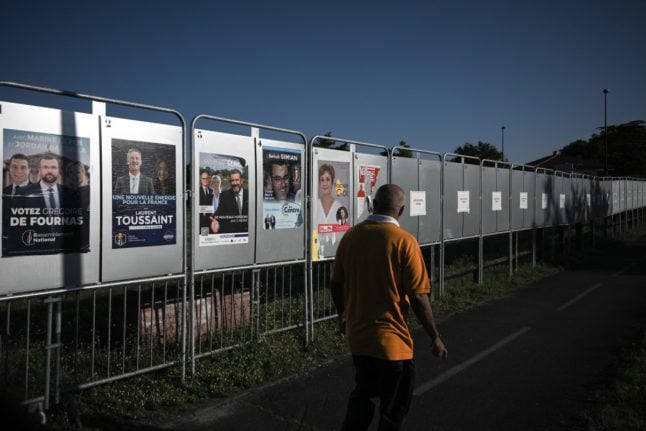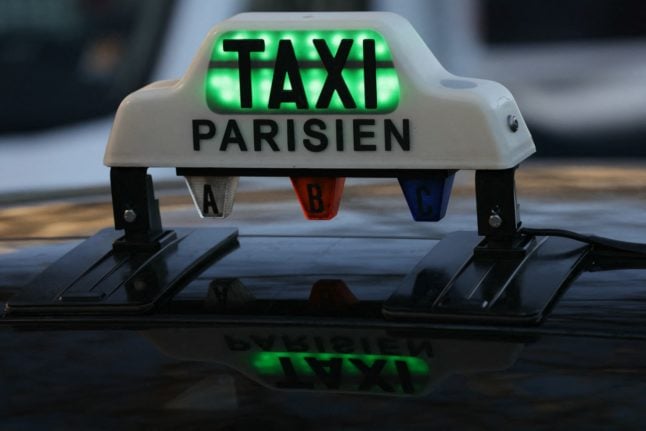His centrist candidate had stepped down after the first round, leaving him with a choice between the left and a far-right candidate once kicked out of the National Assembly for allegedly racist comments.
“I ended up giving my vote to the left,” said the employee near retirement age, who did not give his second name.
“I don’t believe in them anymore despite having voted for them for a long time,” he added in the Bordeaux suburb of Blanquefort, part of a larger district that elected a Socialist politician to parliament.
READ MORE: What happens next in France after bombshell election results?
“But I believe even less in the far right.”
In a surprise twist, a broad left-wing alliance called the New Popular Front (NFP) won most seats in France’s parliament on Sunday, ahead of President Emmanuel Macron’s centrist grouping and the far right.
A call for leftist and centrist candidates in third place to back out of the second round of the race appeared to have paid off and prevented Marine Le Pen’s far-right National Rally (RN) party from power.
That strategy seems to have worked well in the wine-making Medoc district that includes Blanquefort, a traditional stronghold of the left that was home to a Ford gearbox factory until it closed in 2019.
‘No way’
In Jean-Philippe’s district, RN candidate Gregoire de Fournas, a wine maker by training, did well in the first round on June 30 and looked set to win a seat in the second.
He had been briefly kicked out of parliament in 2022 for allegedly telling a fellow lawmaker to “go back to Africa”, charges he denies, saying he was referring to a boat carrying rescued migrants.
But the centrist candidate in third place — Jean-Philippe’s favourite — stepped aside, allowing NFP candidate Pascale Got to be elected instead.
Got, a Socialist who had already been a member of parliament between 2007 and 2017, won 14,000 extra votes in the second round, compared to just 4,000 more for de Fournas.
The RN, which had been leading the race in six of 12 districts in the wider Gironde region, in the end only won a single seat — one that RN vice-president Edwige Diaz had gained outright in the first round.
Another Blanquefort resident, 65-year-old retiree Martine, said she too had felt the need to vote out of character on Sunday.
“I’m more of a centrist and I was a bit bothered when I had to choose something else in the second round,” she said, as she loaded up a shopping cart with goods for her grandchildren.
“But there was no way (Jordan) Bardella was going to become prime minister,” she said, referring to the 28-year-old leader of the RN.
The grandmother, who did not give her second name, said she also recalled leftists helping centrists to elect Macron to a second term in 2022, when he ended up against Le Pen in the runoff.
“So this time I did the same,” she said.
‘Lesson learnt’
Despite the RN’s overall failure in wider Gironde, the anti-immigration and Europsceptic outfit still has strong support in some rural areas of the Medoc, with one town casting more than 70 percent of votes for de Fournas.
And nationwide Le Pen’s group and allies have managed to increase their share of parliament from 88 to 143 seats.
“The RN remains in a position of power,” warned political scientist Vincent Tiberj.
“Even with all the candidates dropping out, they are still reaping” votes.
De Fournas, the outgoing RN lawmaker, said his voters had wrongly thought he would win because he had a comfortable lead in the first round.
“It’s a lesson learnt. A battle needs to be fought to the end,” he told the Sud Ouest newspaper.



 Please whitelist us to continue reading.
Please whitelist us to continue reading.
Member comments